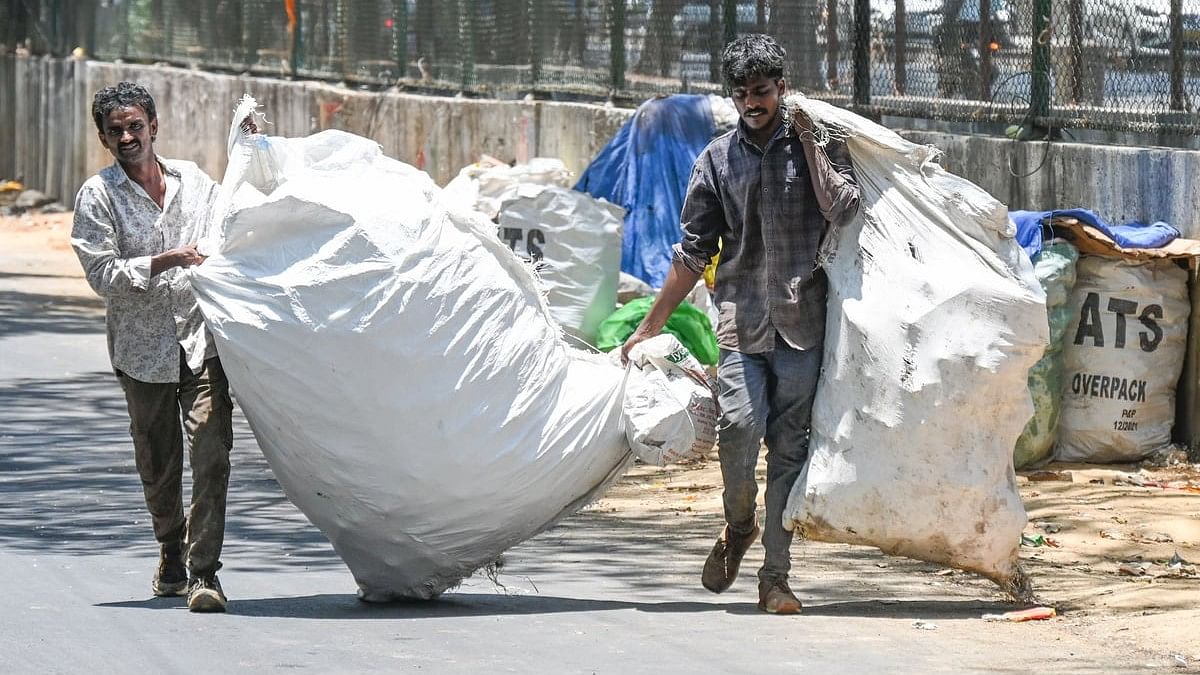
Contract workers segregate solid waste at Indiranagar.
DH FILE PHOTO
With one more World Environment Day looming, Bengaluru continues to struggle with waste management, especially segregation at source.
The struggle is particularly stunning since the Bruhat Bengaluru Mahanagara Palike (BBMP) had issued solid waste management bylaws four years ago, mandating waste segregation.
NGO Hasiru Dala founder Nalini Shekar said proper implementation of the bylaws would “fix all the issues”. "This would enable decentralisation of waste management and integration of waste pickers in the city," she added.
The "two bin, one bag" waste segregation system, which the Karnataka High Court mandated in 2017, is still important.
Dr Shanthi Tummala, founder of the HSR Citizen Forum and member of the Solid Waste Management Round Table, explained the system involves three categories: wet waste, dry waste, and domestic hazardous waste.
"Collection varies by area,” Shanthi said. "Some areas have separate trucks for dry waste collected twice a week, while others have combined collection for all three types of waste. There are also areas with dry waste collection twice a week, but no wet waste collection on those days.”
The city’s waste collection mechanism also runs into roadblocks like auto tippers and pourakarmikas collecting mixed waste from households and the BBMP delaying payments to both the critical workers.
"These agencies pick up waste illegally from commercial establishments as well. While pourakarmikas are employed to sweep the streets, many also pick up waste from households for small fees such as Rs 200," said Sneha Nandihal of I Change Indiranagar.
She also pointed to the poor enforcement of waste segregation rules and penalising offenders, with citizens' apathy and lack of awareness contributing to the issue.
How waste collection works
Dry waste is gathered and sent to dry waste collecting centres, while wet waste is being sent to specific processing centres.
Dhananjay, a supervisor at the Koramangala’s ward 145 wet waste processing centre, said they will deploy 19 vehicles to collect waste from about 500 houses.
"Wet waste undergoes segregation and is transported to Solid Waste Organic (SWO) plants like KCDC and Chikkanagamangala. These plants convert wet waste into fertilisers, and the residue is redirected to cement factories and plants in Bidadi," he said.
Safety hazards
A BBMP worker from ward number 86 in Marathahalli said: “While we engage ourselves in waste segregation, we get glass pieces, needles and other hazardous materials that could cut and infect us.”
Better implementation needed
Bengaluru Solid Waste Management Ltd (BSWML), responsible for waste collection and disposal, said segregation levels have not dropped, but acknowledged it did not improve as well.